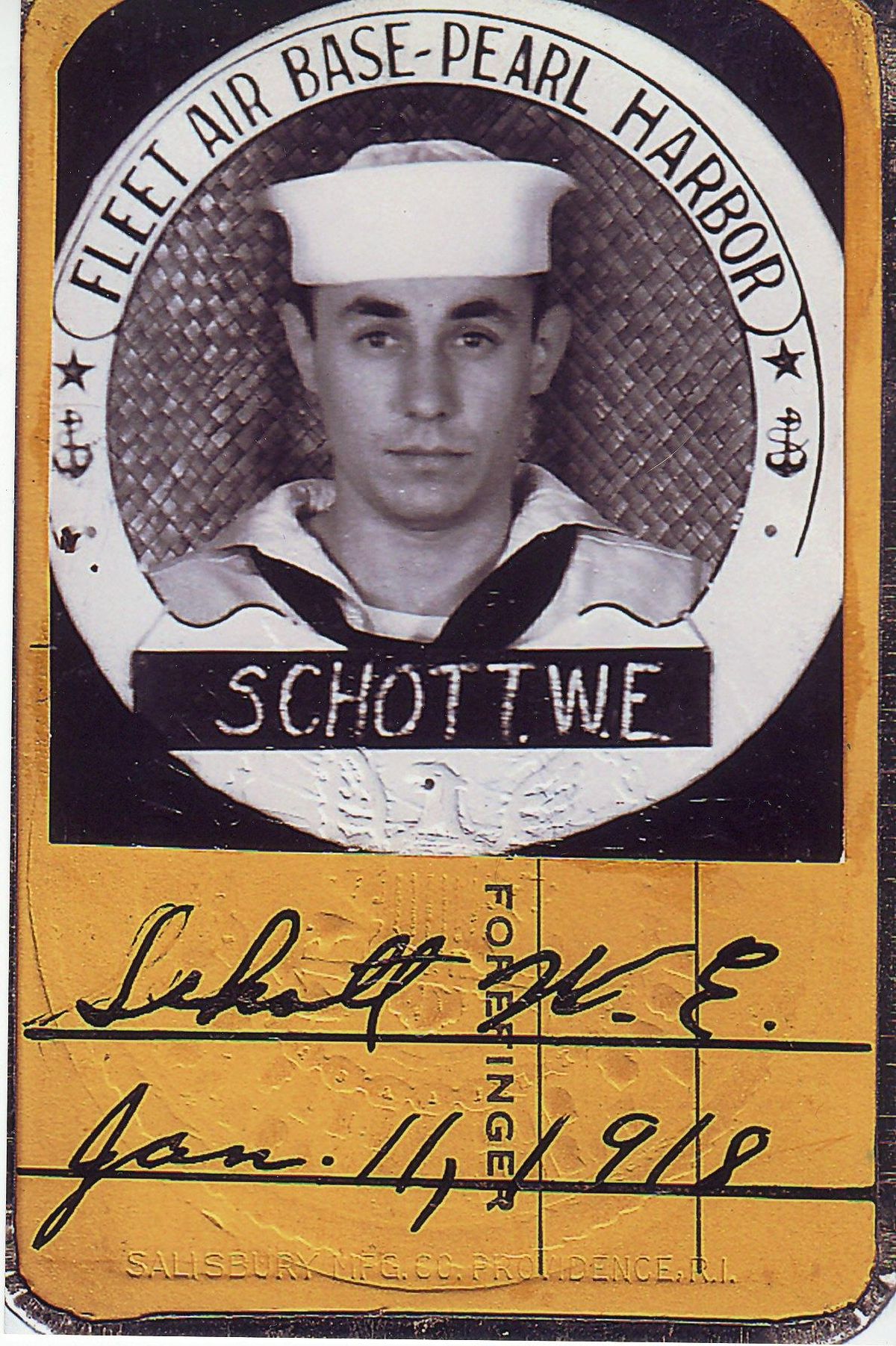Civilian survivor had front-row seat to attack

Originally published July 9, 2015, shortly after Betty Schott’s death at age 98.
As Pearl Harbor survivors, Warren and Betty Schott saw more than their share of death.
Warren had been sent to the Naval Air Station at Pearl Harbor shortly after their marriage in 1938. Betty, a 1935 graduate of North Central High School, was determined to join him and worked until she earned her passage. She arrived on Ford Island in 1939 and they settled into a tiny apartment near Battleship Row.
Their bedroom overlooked the island’s runway, so they were accustomed to noise, but the sounds that woke them on Dec. 7, 1941, were unlike any they’d heard before.
Betty pulled on her robe and looked out the bathroom window. “Warren!” she called, “There’s smoke and fire at the end of the runway.”
Warren went to another window and spotted a plane flying low overhead. “I saw the red balls on the wings of the plane,” he said. “I watched that plane torpedo the USS Utah. I said, ‘Betty, we’re at war!’ ”
While Betty filled fire extinguishers with other civilians in a supply warehouse, Warren had the grim job of pulling the dead and injured from the harbor. The men he pulled out of the water were covered in oil. Afterward, Betty discovered, “They got rid of every towel in my house trying to help clean them up. Finally they took down my kitchen curtains and used them.”
Over the years, they talked about everything, but on one topic Warren remained silent. “He never talked about the people he pulled out of the oily water that morning,” Betty said. “Never.”
It was often painful for them to share their memories. “Slamming a door for days after the attack would make you jump,” Betty said, recalling the terrible noise and confusion they experienced.
But the Schotts felt it was their duty to tell their story and to honor those who died that day.
Though they didn’t think their 76-year marriage was anything remarkable, they were tickled that their story was included in “War Bonds: Love Stories From the Greatest Generation.”
When I visited with Betty in December while working on a story about the 73rd anniversary of Pearl Harbor, I returned some photos she’d let me use for the book.
She reached up and patted my cheek with her soft, timeworn hand. “I’m so proud of you, honey,” she said. And it felt like I’d received a blessing from my grandmother.